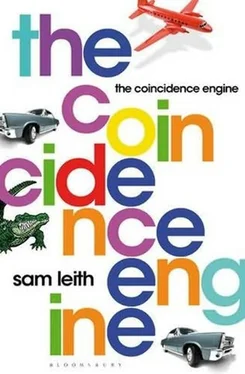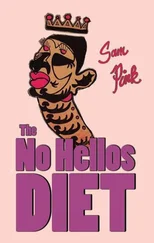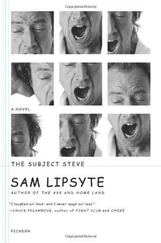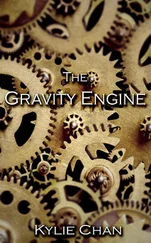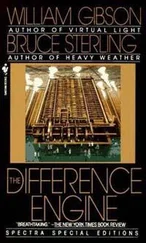That was what she thought of as her double vision. That indignation was still a part of her. But so was the part that saw something else. And even back then, the part that saw things as they were was there. It simply didn’t seem urgent. I’ll keep an eye on that, she’d thought.
She knew that her morning routine wasn’t great; wasn’t how it had always been. She’d make sure she was in the bathroom alone, Al out of the house preferably. Then she’d run the shower and before she got in it she stood over the sink with her hands gripping the sides and she arched over it and retched. She had learned to do this silently, for the most part, feeling her diaphragm spasm. She had to do this for somewhere between thirty seconds and a minute. Most days, a few tablespoons of bitter yellow bile slicked onto the white porcelain. She’d ride it out. That, too, passed, and the nausea left with the bile.
Then she’d breathe in and breathe out. And she’d stand up straight. The shuddering and the retching gone, she would feel a lightness, as if she’d been purged. She’d swill her mouth and the sink with water, and step into the shower, almost bright, ready to face the day.
And even though her work at the Pentagon was paper-shovelling, she kept at it. She arrived on time and she left on time and she worked damn well. Until Al left she was keeping it going. She thought of Al’s mousy, too-long hair. The yellow tint to his sunglasses and the brown leather jacket he loved and always wore. The speed and anger of his going.
Bree looked out of the car window. America was passing. It was warm, but the air was thick and the sky was the colour of ash. A couple drops of rain fell on the windshield.
Al was still there when she’d started to lose time. They’d had so much time back then, when they were young and new-married, that Bree barely noticed it going missing. When it did, it had been funny – Al shaking his head at how Bree couldn’t remember getting home from parties and feigning theatrical outrage when Bree would ask: ‘Did we…?’
‘You’ve forgotten ?’
Later, though, she lost time more easily, more unexpectedly, more disconcertingly. Time started to vanish in the way that dollars would vanish from her purse – just a tentative five minutes here or there, surreptitiously, calculated so she wouldn’t miss it but not calculated well enough. She’d find herself in a different room than she had been, tips of her fingers grazing the door jambs, mouth open to deliver a sentence she had no idea of. She would frown and withdraw. That, at least, early on.
The thefts became more blatant. Money from the purse was not an analogy. Money really had been going missing from her purse. And it was hard to be sure, at first, how much and when. But it was clear Cass was stealing from her. Finally, she confronted her about it and Cass reacted as she always did when cornered: with the sort of indignation only an eleven-year-old can muster. Her whole face shone red as she screamed back. Bree slapped her – not on the face but on the legs.
Al had gone by this time. Had he? Bree couldn’t always remember the sequence of events. But that would explain why she was so angry – he’d left them both in the shit, the way he walked out. She was under such pressure then. She couldn’t afford childcare. And her money was going missing. And Cassie was bed-wetting and Bree was exhausted and her good-for-nothing husband had meanwhile lit out for the territories with an armload of his own paintings. It was the first time she’d hit her daughter.
‘Never steal. Never steal from your mommy, never. You hear me?’ Blood thumping in her ears, rage misting everything. Cass’s yell, as the blows landed – suddenly turning the corner into a shriek, even shriller and even louder.
It was about this time that the sneak-thief started to get bolder. Money started disappearing from the bedside table. And drinks – the emergency half-jack in the wardrobe; the old miniatures of vodka in the ice compartment. And time – great chunks of time would have been pocketed, spirited away. It was very confusing.
Was the same person who was taking the money taking the time? That’s all money was, Bree had once heard someone say: frozen time. It became impossible to keep track of things.
The thief was eventually apprehended.
Bree never felt that the Bree who had been doing that stuff was another person, one who had died at those meetings to make way for the shiny new person who was now sitting in the car with Jones. That Bree had continued. In another life, one where Bree had spent a lot less time sitting in smoky, talky rooms on jittering plastic chairs comparing war stories, she was living on, still drinking. She’d be deathbound by now, living through blank, real spaces, passing hours and days into her blackouts like someone patiently feeding a furnace: there, but not there.
And she was here, but not here. She followed this Bree around with the tenacity of a shadow. She was long when the sun was low; almost invisible in the bright of the day. Bree could lose touch with her for just a second, by jumping – but then gravity intervened and Bree wasn’t a great one for jumping up and down these days, in any case.
Stupid analogy, Bree thought. Raindrops, an unexpected shower, gathered and ran on the windshield. They felt like another analogy, and she wondered what it was like to be Jones, who had shown no signs of making conversation since lunch, and for whom the slick of water running down the windshield would never be anything other than rain.
Bree thought about not-Bree, drinking Bree. It was as if she had acquired a twin. In that life, this Bree would be shadowing her. Sober Bree, in that world, would be not-Bree: would be just there, hanging around, waiting. The thing that was your deepest, darkest terror: the thing you longed for.
Snap. Cheers, sister.
Except in both these worlds, they had taken Cass away, and Bree wondered momentarily in which of these worlds she was living and why.
It was the morning of the third day that they got a sure fix on Alex. It was pure good luck.
Red Queen remembered that the Directorate had a long-gone field agent by the name of Doc, living in the New Mexico desert near the Texas border. Doc was semi-retired on medical grounds after spearheading the Directorate’s intensive 2003 investigation into the effectiveness of ayahuasca trances as an intelligence-gathering technique.
The verdict of the investigation – reached not by Doc himself but by those observing his experiments with a clearer head – had been ‘not very’. Doc was loco in the brainpan, no two ways about it.
But Red Queen reached out to Doc anyway, and Doc – who did things, if he did them, for reasons of his own – agreed to drive his tangerine-coloured pickup to a bluff overlooking the I-40 and wait for ‘this cat with the magic ring’.
‘Magic ring?’ Red Queen had said.
‘A snake told me about it,’ Doc had said.
Red Queen had made a mental note. ‘And his licence plate. You have it?’
‘Wrote it down. In-scriibed it.’
‘With a pen?’
‘It’s cool,’ Doc had said. ‘I see auras. He’s going to be lit up like a Christmas tree on the Fourth of July. He’ll be haloed in rainbows. It’ll be like the Northern Lights. I’ll see him.’
‘The licence plate…’
‘It’s cool,’ Doc had repeated before ringing off. But true to his word he had perched above the highway and watched the westbound traffic with lizard eyes. And to Red Queen’s voluble astonishment, had not only got a tail on the boy but confirmed that the boy was himself being followed. ‘Couple of wolf-like cats. None too smart. Violent men. Big one and a small one. Keep losing him. And there’s something else. Somebody else. A very old man. He’s here and he’s not here. Like John Barleycorn or an old shaman I know. I’m moving in,’ he had added. ‘Do me good to get within a sniff of civilisation. Reckon I’ve got a fix.’
Читать дальше
